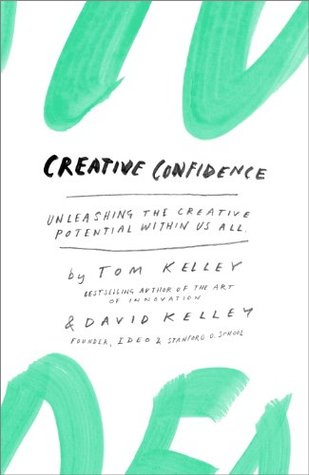More on this book
Community
Kindle Notes & Highlights
Read between
November 28 - November 30, 2021
“If a problem is not worth solving, it’s not worth solving well.”
Focusing our energy on the right question can make the difference between incremental improvement and breakthrough innovation.
Where innovation happens is often in the “Aha” moment when you realize what the real problem or need ...
This highlight has been truncated due to consecutive passage length restrictions.
John F. Kennedy charged Americans to “Ask not what your country can do for you—ask what you can do for your country,”
many of our best ideas result from collaborating with other people.
Louis Pasteur famously asserted 160 years ago that “chance favors the trained mind.”
chance favors only the prepared mind.
Nurture the kind of “prepared mind” that seizes the moment when an epiphany occurs.
Sometimes, simple changes in perspective can spark new insights. If you let go of what you “know,” you can start to look at things with fresh eyes—and with more questions than answers.
observation/prototyping/storytelling experience called “the ramen project.” Students set out to “design a better ramen experience” in one week, using the human-centered design process.
Isaac Newton’s first law of motion suggests that “a body at rest tends to stay at rest; a body in motion tends to stay in motion.”
The first step toward being creative is often simply to go beyond being a passive observer and to translate thoughts into deeds.
Write down the things that bug you, and you’ll start being more mindful of them.
Yoda, another wise and seasoned change master, put it to Luke Skywalker in Star Wars, “Do or do not. There is no try.”
if you want to make something great, you need to start making. Striving for perfection can get in the way during the early stages of the creative process.
Steven Pressfield calls the “war of art.”
“Most of us have two lives,” says Pressfield. “The life we live, and the unlived life within us. Between the two stands Resistance …
Constraints can spur creativity and incite action, as long as you have the confidence to embrace them.
embracing architect Mies van der Rohe’s maxim: “Less is more.”
instead of establishing one big deadline, build in as many “mini-deadlines”
EXPERIMENT TO LEARN What’s the best way to make progress toward your goal?
Eric Ries, author of The Lean Startup, calls such a prototype a minimum viable product, or MVP—representing the least amount of effort needed to run an experiment and get feedback.
If you are struggling to find a place to cut, try watching the video ten times in a row.
Once you have a first-draft storyboard, write three questions it raises about your idea.
Air New Zealand challenged that conventional wisdom with Skycouch. The seats include a heavily padded section that can be swung up like a footrest, transforming a row of three seats into a futon-like platform that a couple can lie down on together. Industry observers have begun referring to the new seating configuration as “cuddle class.”
LAUNCH TO LEARN
“Release your idea into the wild before it’s ready.”
Embracing experimentation can help fuel the fires of innovation.
Try recasting your changes as experiments to boost reception and increase creative confidence.
Work doesn’t have to feel like “Work with a capital W.” You should be able to feel passion, purpose, and meaning in whatever you do. And that shift in perspective can open up a world of possibilities.
we are able to bring our whole selves to work—quirks and all—which helps us make a more meaningful contribution.
for those who pursue a calling, their work is intrinsically rewarding in its own right—not just a means to an end. So, what you do professionally fulfills you personally as well.
work is meaningful because you are contributing to a larger purpose or feel part of a larger community.
What matters most about your career or position is not the value that others put on it. It’s how you view your job. It’s about your dream, your passion. Your calling.
passion demands effort.
“Just by taking action you’re better off than ninety-nine percent of people.”
When people go for the heart—when they seek out passion in their work—they can tap into and unleash inner reserves of energy and enthusiasm.
three circles represented three questions you should ask yourself: “What are you good at?” “What will people pay you to do?” and “What were you born to do?”
If you focus on just what you’re good at, you can end up in a job you are competent at but that doesn’t fulfill you.
As for the second circle, while people say, “Do what you love and the money will follow,”...
This highlight has been truncated due to consecutive passage length restrictions.
The third circle—what you were born to do—is about finding work that is intrinsically rewarding.
how do you know what you were born to do? We believe the answer is related to what Mihaly Csikszentmihalyi, an expert in the field of positive psychology, calls “flow”—that creative state in which time seems to slip away and you are completely immersed in an activity for its own sake.
Days in which David had a solitary hour or two in his studio space—a rustic loft over a barn—were more rewarding, happier days. And his score bumped up even higher when he blasted his favorite music while making something in the studio—whether
moments of epiphany and behavior change—articulating
try identifying the things that bring you happiness and fulfillment. Look for ways to incorporate more of those things in your life, whether it’s helping others, getting more exercise, reading more books, going to a live concert, or taking a cooking class.


